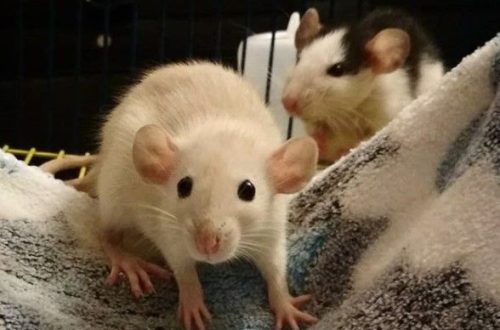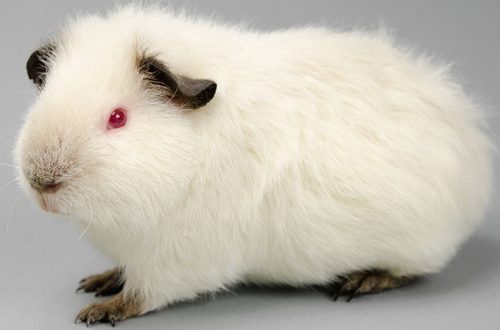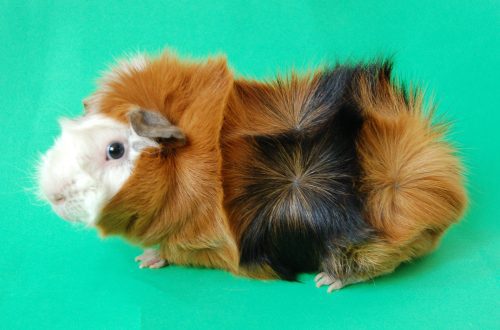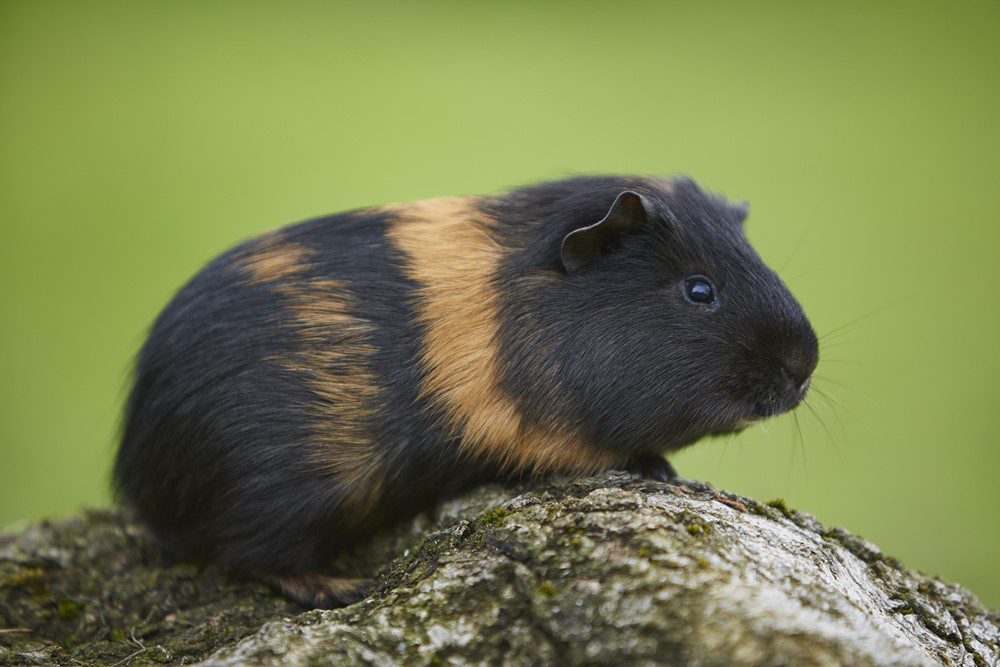
Avitaminosis in guinea pigs
Although the commercially available ready-to-eat foods are usually fully sufficient for most animals, it unfortunately happens that some guinea pigs show symptoms of certain nutrient and vitamin deficiencies, in other words – avitaminosis.
Symptoms of beriberi in guinea pigs:
- alopecia (baldness) is the most common symptom of beriberi
- dermatoses (may be accompanied by itching, rash, burning)
- teeth problems.
Although the commercially available ready-to-eat foods are usually fully sufficient for most animals, it unfortunately happens that some guinea pigs show symptoms of certain nutrient and vitamin deficiencies, in other words – avitaminosis.
Symptoms of beriberi in guinea pigs:
- alopecia (baldness) is the most common symptom of beriberi
- dermatoses (may be accompanied by itching, rash, burning)
- teeth problems.
Vitamin C deficiency in guinea pigs
The most common type of beriberi in guinea pigs is vitamin C deficiency, although this is rarely acute enough to cause overt symptoms. Therefore, one must constantly be aware of this threat, realizing that a lack of vitamin C weakens the body’s natural immune system and increases the likelihood of disease.
Progressive vitamin C deficiency leads, as in humans, to scurvy. Here is what the famous German writer and journalist Bernhard Grzimek writes about this in his book “Our Little Brothers”: “… these funny fat little animals have one thing in common with us, people: they can, like us, get scurvy. True, in their homeland, in Peru, where a lot of both wild and domestic guinea pigs roam, they have never suffered from such a disease. It is we humans who have given unfortunate experimental animals such a disease.”
In the process of evolution, they have lost the ability to synthesize vitamin C.
Symptoms of scurvy are loose teeth, and in an extremely acute form, attacks during which the animal usually lies on its side with outstretched paws and an expression of pain on the muzzle. Salvation in this case can only be a strong dose of vitamin C, best of all in the form of a solution, which is given according to the instructions of the veterinarian.
Many breeders believe that if the pig gets vegetables and fruits, you can be sure that she is not in danger of vitamin C deficiency. But there is an opinion that a sufficient amount of vitamin C does not always come with food, especially in winter, so vitamin C in the form of supplements is a vital necessity.
For information on how much and how to give vitamin C, read the article “Vitamin C for guinea pigs”
The most common type of beriberi in guinea pigs is vitamin C deficiency, although this is rarely acute enough to cause overt symptoms. Therefore, one must constantly be aware of this threat, realizing that a lack of vitamin C weakens the body’s natural immune system and increases the likelihood of disease.
Progressive vitamin C deficiency leads, as in humans, to scurvy. Here is what the famous German writer and journalist Bernhard Grzimek writes about this in his book “Our Little Brothers”: “… these funny fat little animals have one thing in common with us, people: they can, like us, get scurvy. True, in their homeland, in Peru, where a lot of both wild and domestic guinea pigs roam, they have never suffered from such a disease. It is we humans who have given unfortunate experimental animals such a disease.”
In the process of evolution, they have lost the ability to synthesize vitamin C.
Symptoms of scurvy are loose teeth, and in an extremely acute form, attacks during which the animal usually lies on its side with outstretched paws and an expression of pain on the muzzle. Salvation in this case can only be a strong dose of vitamin C, best of all in the form of a solution, which is given according to the instructions of the veterinarian.
Many breeders believe that if the pig gets vegetables and fruits, you can be sure that she is not in danger of vitamin C deficiency. But there is an opinion that a sufficient amount of vitamin C does not always come with food, especially in winter, so vitamin C in the form of supplements is a vital necessity.
For information on how much and how to give vitamin C, read the article “Vitamin C for guinea pigs”
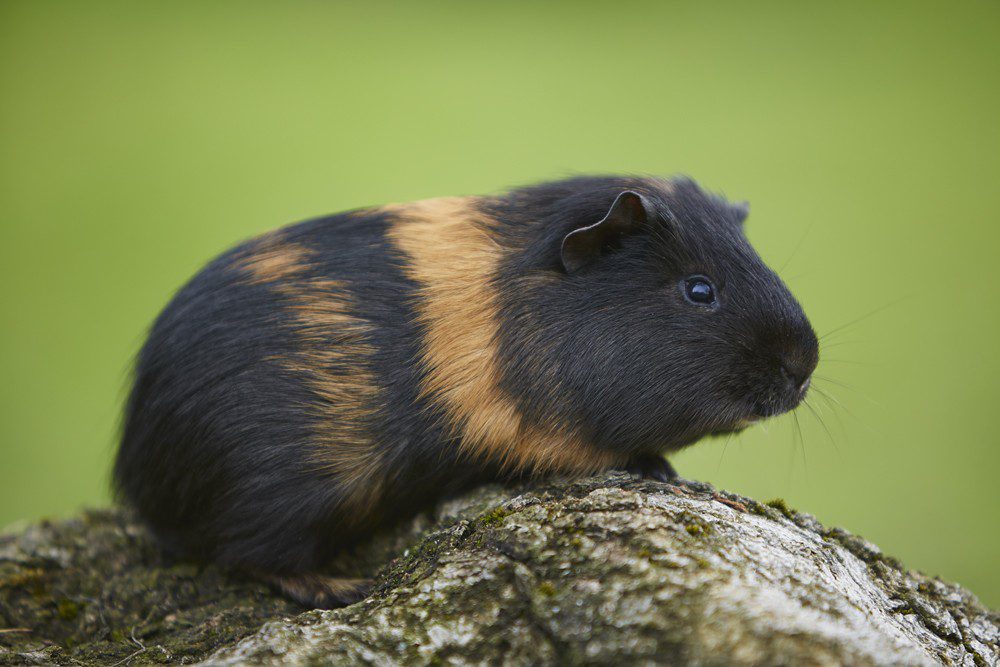
Other types of beriberi in guinea pigs
In cases of other avitaminosis, for example, manifested in hair loss or skin allergies, it is recommended to give a multivitamin preparation daily. In addition, of course, one should strive to exclude the cause of the disease, because with proper nutrition, such a problem should not arise in principle.
Already weakened animals catch cold easily. This occurs mainly when beriberi is aggravated by the fact that an unsuitable place has been chosen for the cell. If the mumps catches a cold, you must: eliminate the root cause of the disease; keep the animal warm; try to strengthen his immune system by increasing the dose of vitamins.
Less dangerous, but also unpleasant, are inflammation of the eyes caused by drafts. In this case, the first step should also be the transfer of the animal from an unsuitable place for him. In addition, eye drops prescribed by a veterinarian are used.
In order not to expose the guinea pig to the danger associated with sudden changes in temperature, you can only take it out to the balcony when the weather is really warm. This South American rodent thrives best around 20°C.
In cases of other avitaminosis, for example, manifested in hair loss or skin allergies, it is recommended to give a multivitamin preparation daily. In addition, of course, one should strive to exclude the cause of the disease, because with proper nutrition, such a problem should not arise in principle.
Already weakened animals catch cold easily. This occurs mainly when beriberi is aggravated by the fact that an unsuitable place has been chosen for the cell. If the mumps catches a cold, you must: eliminate the root cause of the disease; keep the animal warm; try to strengthen his immune system by increasing the dose of vitamins.
Less dangerous, but also unpleasant, are inflammation of the eyes caused by drafts. In this case, the first step should also be the transfer of the animal from an unsuitable place for him. In addition, eye drops prescribed by a veterinarian are used.
In order not to expose the guinea pig to the danger associated with sudden changes in temperature, you can only take it out to the balcony when the weather is really warm. This South American rodent thrives best around 20°C.



